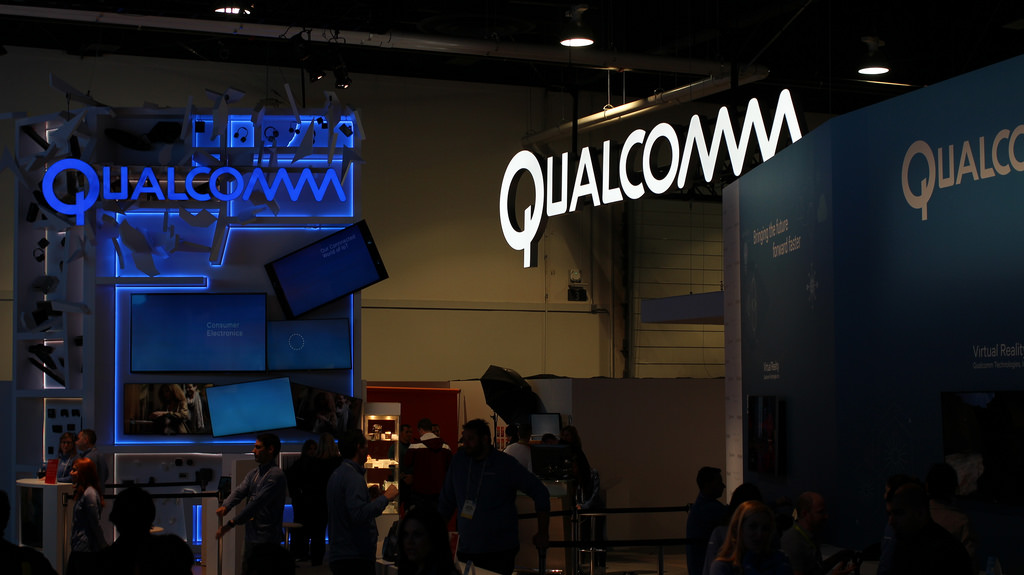 INFRA
INFRA
 INFRA
INFRA
 INFRA
INFRA
Qualcomm Inc. is taking the gloves off over its patent spat with Apple Inc.
On Monday, the chipmaker responded to an Apple lawsuit over its patent licensing practices with a 134-page redacted filing that included some counterclaims of its own, such as a breach of contract. Qualcomm also asked for an unspecified amount in damages from Apple.
“Over the last 10 years, Apple has played a significant role in bringing the benefits of mobile technology to consumers with its popular products and services,” Don Rosenberg, executive vice president and general counsel of Qualcomm, said in a statement. “But Apple could not have built the incredible iPhone franchise that has made it the most profitable company in the world, capturing over 90 percent of smartphone profits, without relying upon Qualcomm’s fundamental cellular technologies.”
Qualcomm’s counterclaims against Apple are the latest gambit in a legal dispute that began in earnest in January. Qualcomm is the largest provider of microchips for smartphones, including Apple’s iPhone, but it also makes money with royalties from any device that incorporates its cellular standards. About a third of Qualcomm’s revenue comes from patent licensing, but Apple filed a lawsuit in January that claims Qualcomm has been charging royalties for technology it has “nothing to do with.”
According to Apple’s lawsuit, Qualcomm failed to offer fair licensing terms for its processor technology. In addition, Apple said Qualcomm sought to punish it for cooperating with South Korean authorities’ investigation into the chip maker’s licensing practices, by withholding a $1 billion rebate.
Apple asked the courts to reduce the amount it pays Qualcomm in licensing fees, and also to return the $1 billion it says has been withheld. The iPhone maker reckons Qualcomm’s royalties should be based on the value of its particular contribution to each device, instead of being based on the selling price of the devices’ themselves.
In its counter-filing, Qualcomm claims that Apple breached and mischaracterized agreements and negotiations between the two firms, interfered with its agreements with other device manufacturers, encouraged regulatory attacks against it across the world, chose not to utilize the full performance of its chips in its iPhone 7, and threatened to prevent it from speaking publicly about how iPhones perform better with Qualcomm chips.
“Apple’s goal is clear — to leverage its immense power to force Qualcomm into accepting less than fair value for the patented technologies that have led innovation in cellular technology and helped Apple generate more than $760 billion in iPhone sales,” the company said in its filing.
Qualcomm also denied all of the accusations made against it by Apple in the January lawsuit, citing 35 separate defenses it plans to rely on, including one that states “to the extent that Apple has suffered damages, if at all, all damages were caused by Apple’s own actions.” The company also spoke about the innovations its made in connectivity, saying it invented “fundamental technologies at the heart of 2G, 3G, and 4G cellular communications,” and that Apple “refuses to acknowledge the well established and continuing value of those technologies.”
The Apple lawsuit is just the latest in a long list of complaints over Qualcomm’s alleged monopolistic practices. Two years ago, Qualcomm settled out of court with Chinese authorities, paying $1 billion to close a 14-month antitrust investigation against its business practices there. Last December, South Korea slapped Qualcomm with a $850 million fine following a three-year-old antitrust investigation. South Korea’s Fair Trade Commission found that the chipmaker had an “unfair business model” that allowed it to create a monopoly.
The U.S. Federal Trade Commission is also investigating claims that Qualcomm has illegally dominated the smartphone chip market.
Support our mission to keep content open and free by engaging with theCUBE community. Join theCUBE’s Alumni Trust Network, where technology leaders connect, share intelligence and create opportunities.
Founded by tech visionaries John Furrier and Dave Vellante, SiliconANGLE Media has built a dynamic ecosystem of industry-leading digital media brands that reach 15+ million elite tech professionals. Our new proprietary theCUBE AI Video Cloud is breaking ground in audience interaction, leveraging theCUBEai.com neural network to help technology companies make data-driven decisions and stay at the forefront of industry conversations.